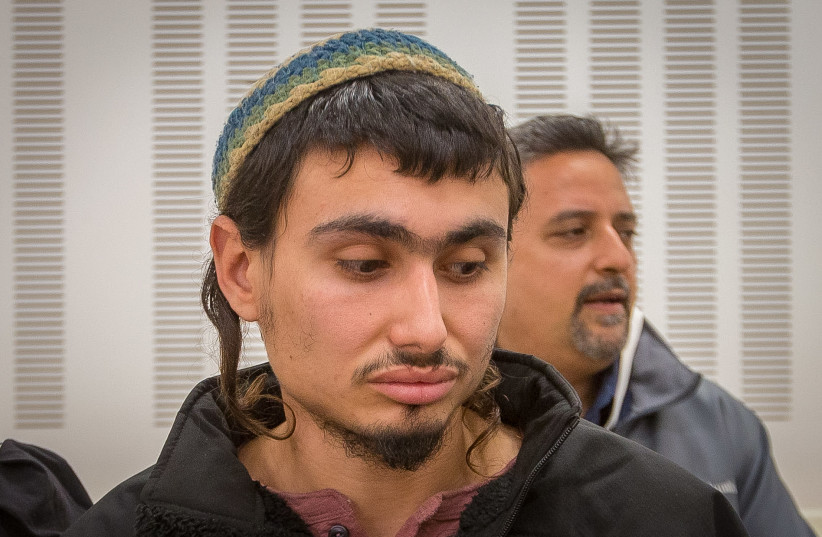An IDF court Tuesday night extended by one week the house arrest of Sgt. (res.) Aviad Frija who shot dead Yuval Doron Castleman, after he shot and killed two Hamas terrorists in Jerusalem then raised his hands and pleaded for his life as he faced Frija’s weapon pointed at him.
The incident occurred on November 30, but Frija was arrested only on December 4, and was then committed to house arrest the next day by the IDF court where he has remained.
Controversially, Frija had been allowed to remain free between November 30 and December 4, and it is still unclear whether he will be prosecuted and under what charge. He claims that he believed Castleman was a terrorist who still presented a danger, but evidence at the scene undermines his defense.
So far, public statements from top defense officials have not condemned Frija to anywhere near the same degree as “Hebron Shooter” Elor Azaria who was condemned by top defense officials after he shot and killed a neutralized Palestinian who was lying on the ground in 2015.
During the November incident, four people, apart from the two terrorists, were killed and four others were wounded in the shooting attack at the entrance to Jerusalem.

While three were killed by the two Hamas terrorists, Yuval Doron Castelman, an attorney from Mevaseret Zion with a background in the security services, responded to the attack and, along with Israeli security forces on the scene, shot and killed the two terrorists.
The IDF Prosecution had requested a two-week extension of Frija’s house arrest while the defense sought his immediate release. The court’s one week extension pressures the IDF to complete its investigation.
Civilian surrenders before he is shot
In security camera footage, Castleman can be seen dashing with his gun from the other side of the and shooting at the attackers.
Next, Frija aims at Castleman, who kneels, raises his arms as a sign of surrender, and opens his shirt before Frija shoots him.
Finally, Frija and another soldier involved were questioned under caution, though the police and the prosecution still have not selected a potential charge.
In past cases where IDF soldiers killed Palestinians while breaking the rules of engagement, such as shooting someone who has surrendered, the charges have usually not been murder, but either manslaughter/second degree murder or even negligent homicide.
Whereas murder can carry a life sentence, manslaughter convictions of IDF soldiers have often carried sentences of under two years. Negligent homicide convictions have carried sentences of weeks to several months.
Despite the seemingly airtight video evidence that Frija shot Castleman while his hands were raised, The Jerusalem Post understands that Frija claimed that after Castleman raised his hands he made other suspicious movements with his hands.
Though Frija consented to a polygraph test, the investigation so far has uncovered significant gaps between the testimony of the soldier and evidence found at the scene of the shooting.
According to Frija’s lawyers, Col. (res.) Shlomi Tzfouri and Col. (res.) Ran Cohen Rockberger, who was the former chief military defense attorney, the footage published on social media did not reflect the actual situation.
“The video clips from the scene of the attack that were published on social networks, and their camera angles, create a partial and erroneous impression which does not reflect what is seen and heard from the direction of the fighter. The additional shooting by the fighter and [understanding the vantage point of] other people in the area toward the late Yuval must be examined according to all the circumstances and the situation presented to the soldier in real-time,” they said.
Further, they said, “From where the fighter was standing, from the sights he saw and the sounds he heard, the fighter was convinced with all his heart that he was firing at a terrorist who still posed a life-threatening danger to him and to everyone around him. He had no intention of carrying out an illegal “extra judicial killing,” and this was not how he acted. Immediately after he saw that person was wounded and on the ground, he stopped shooting.”
"After hearing the testimony of the fighter, we have no doubt that under these unusual extreme circumstances, the Military Advocate General’s Office will also reach the clear conclusion that with all the heavy sorrow from the terrible result, this is a tragic mistake that does not justify taking criminal measures against the fighter," they added.
To date, the court seemed to accept some of the defense’s arguments in deciding to let Frija out of military police custody into house arrest, though that does not necessarily mean the court will rule for the defense if the case goes to trial.
